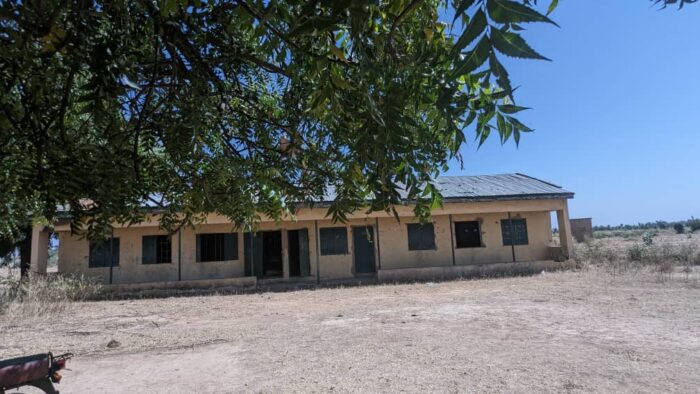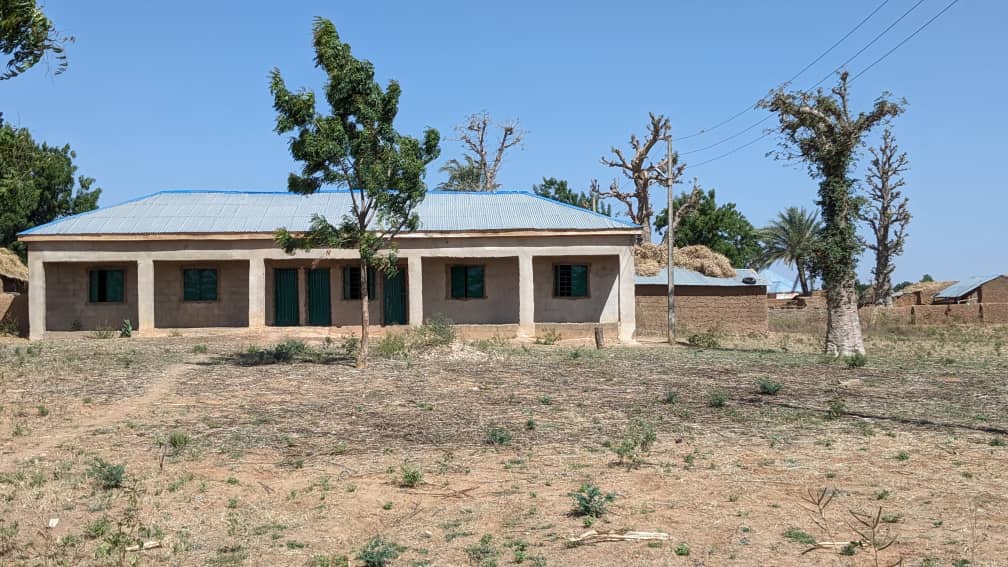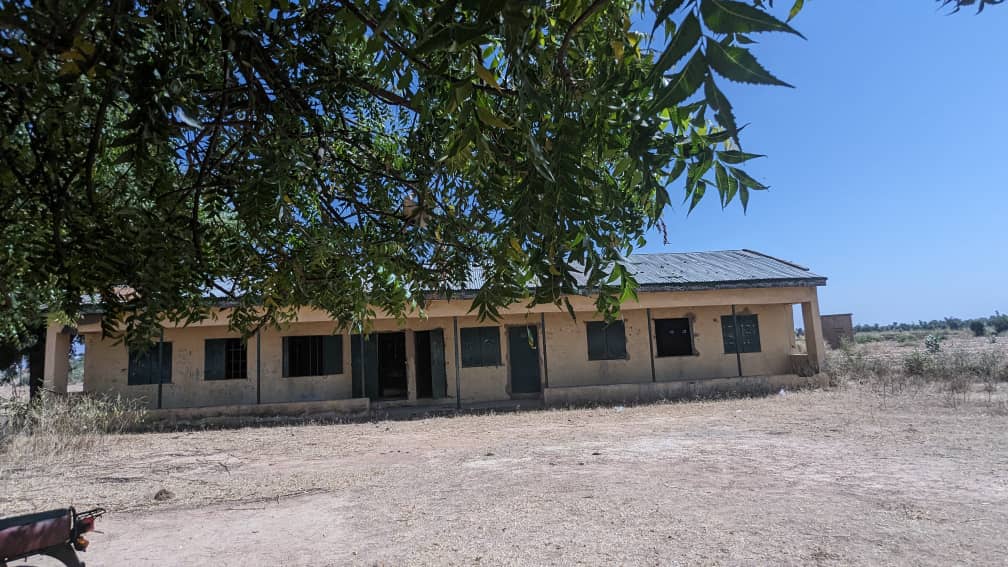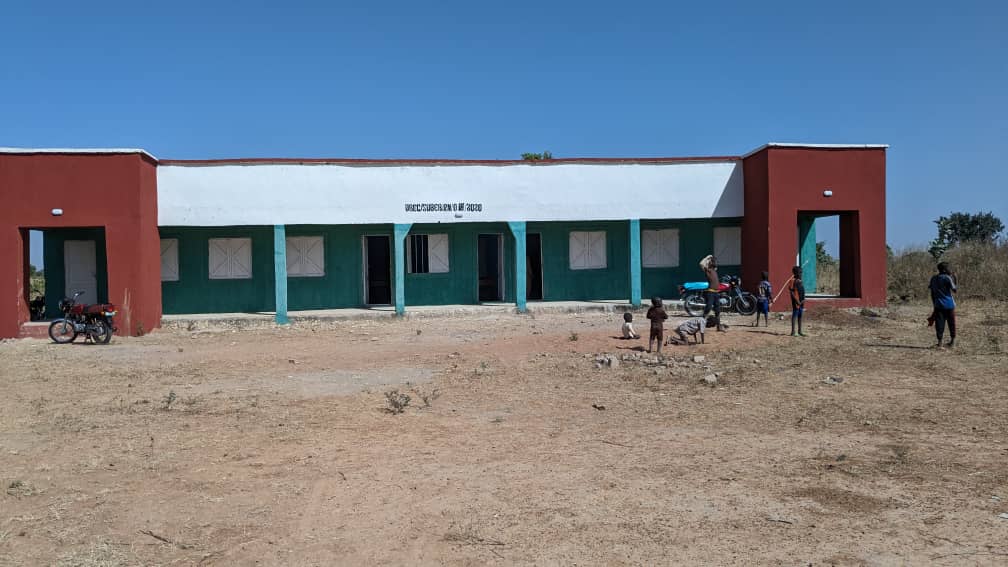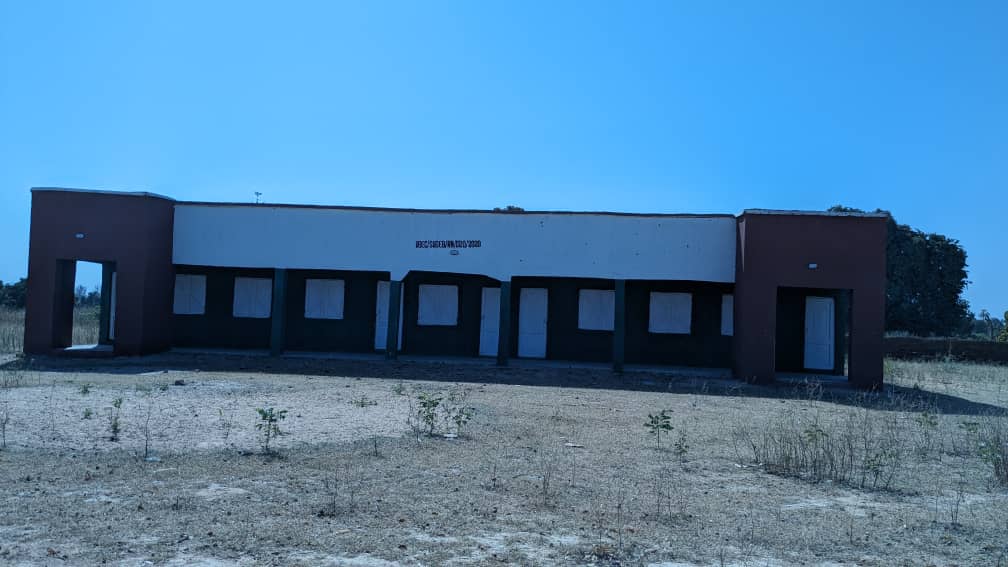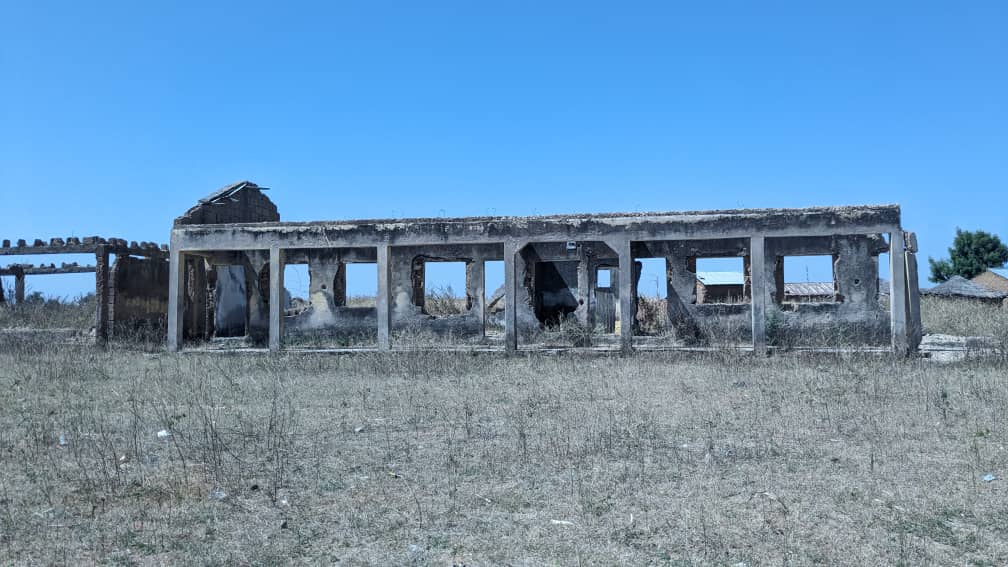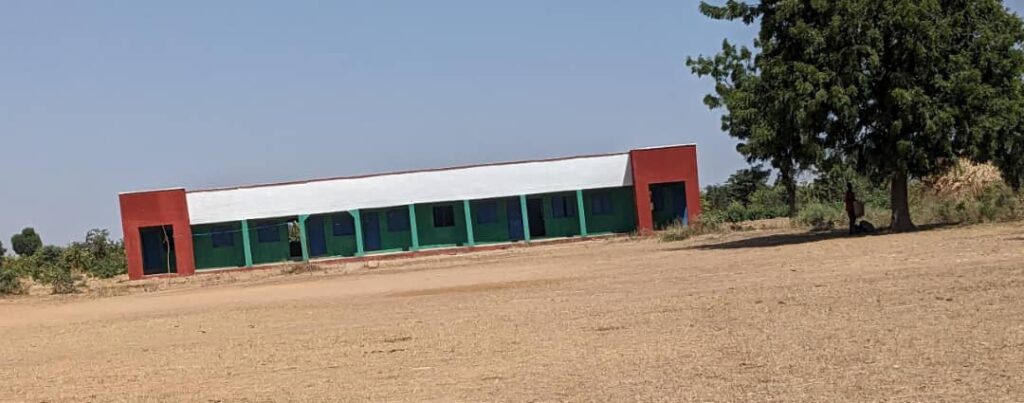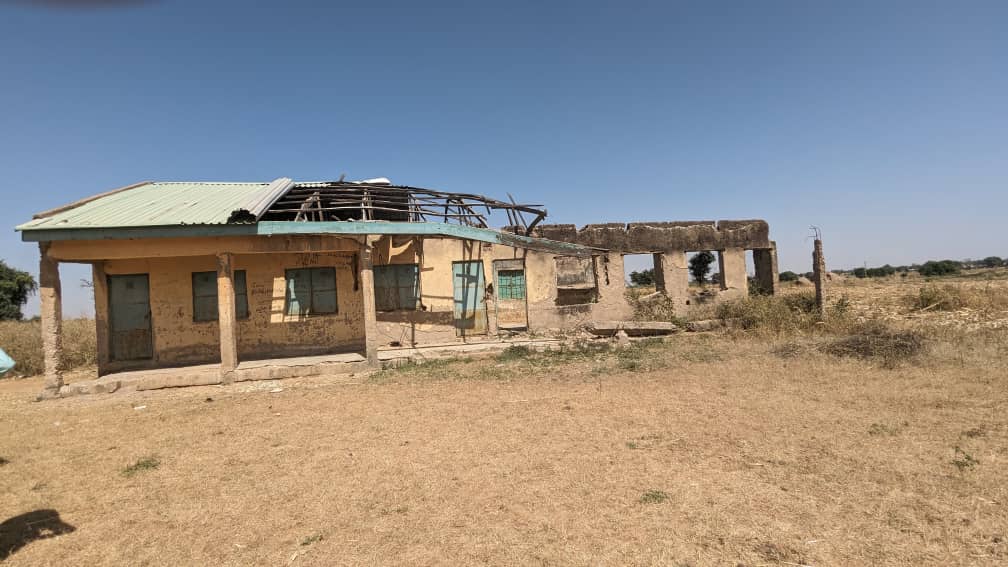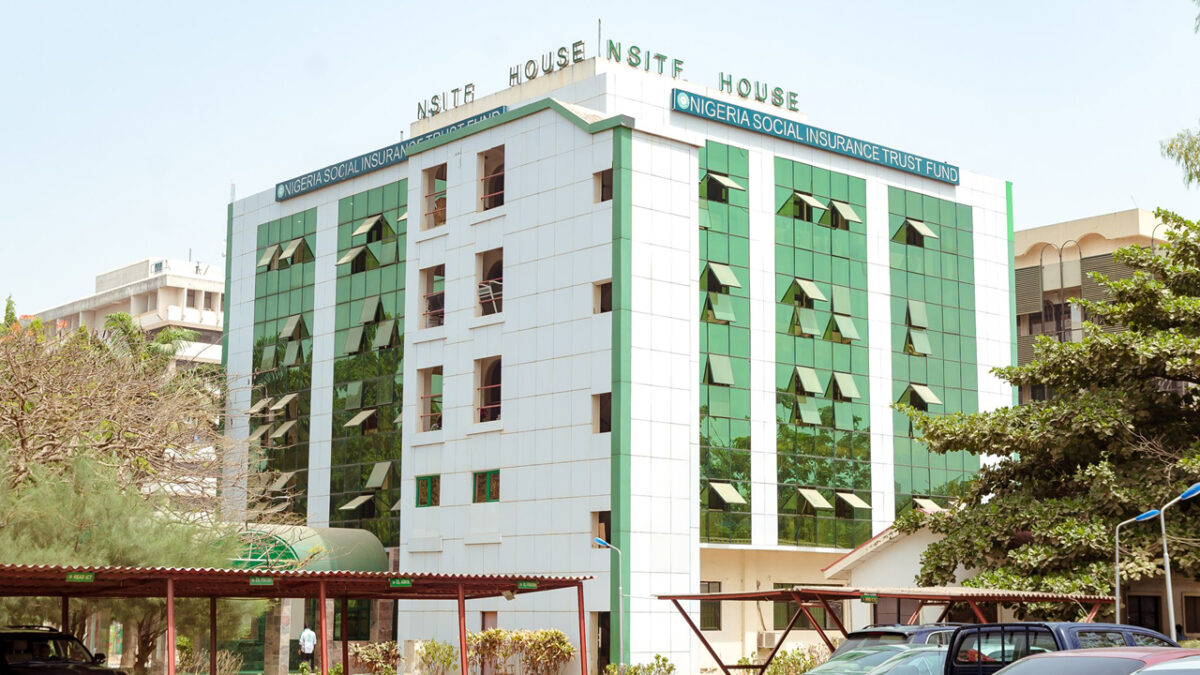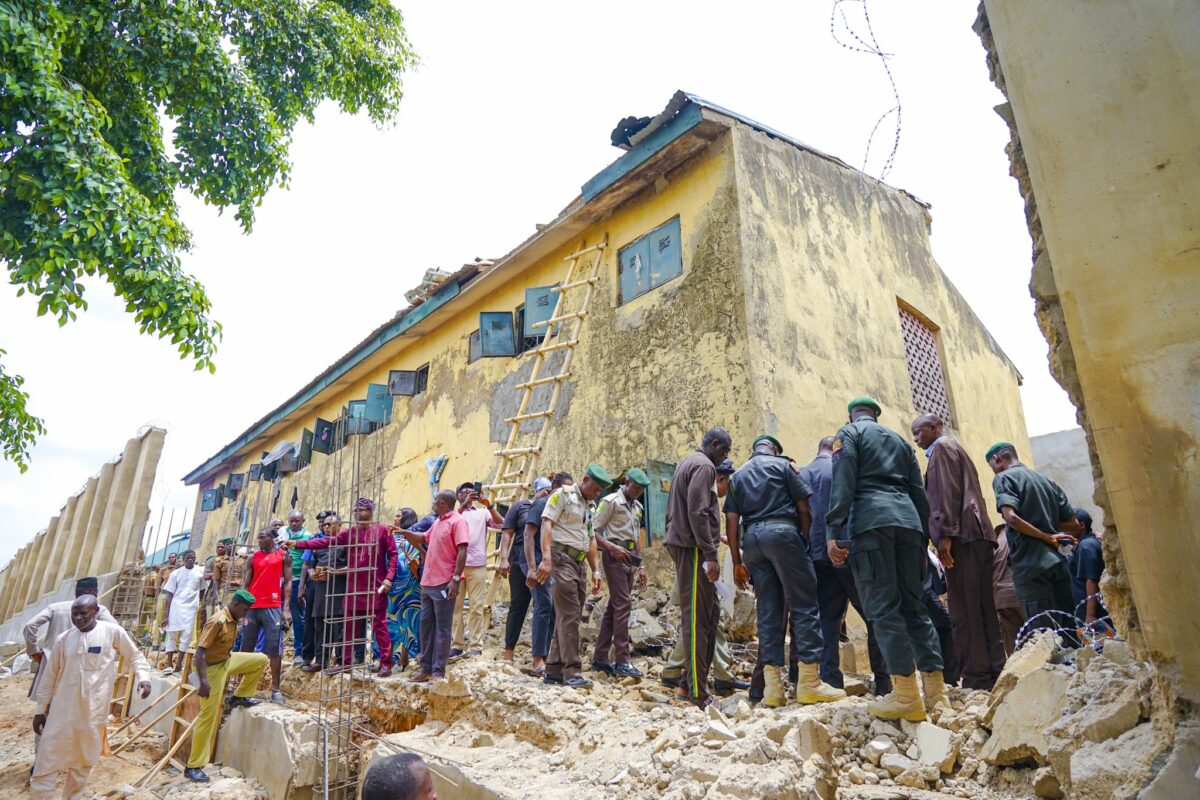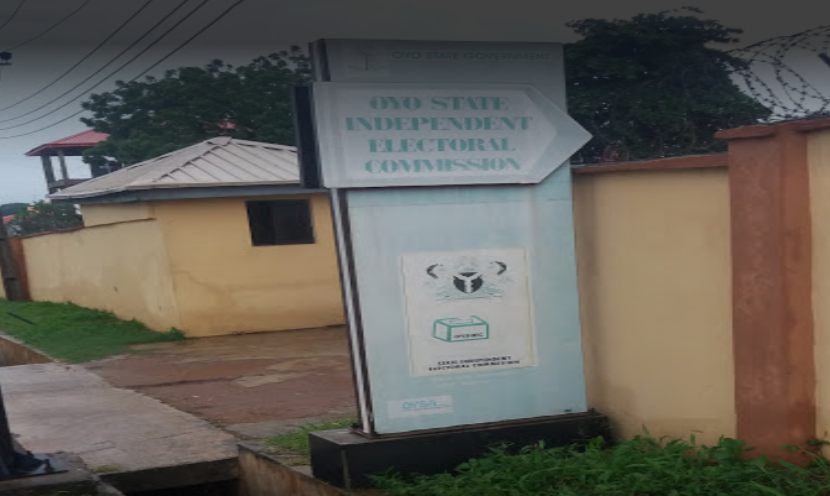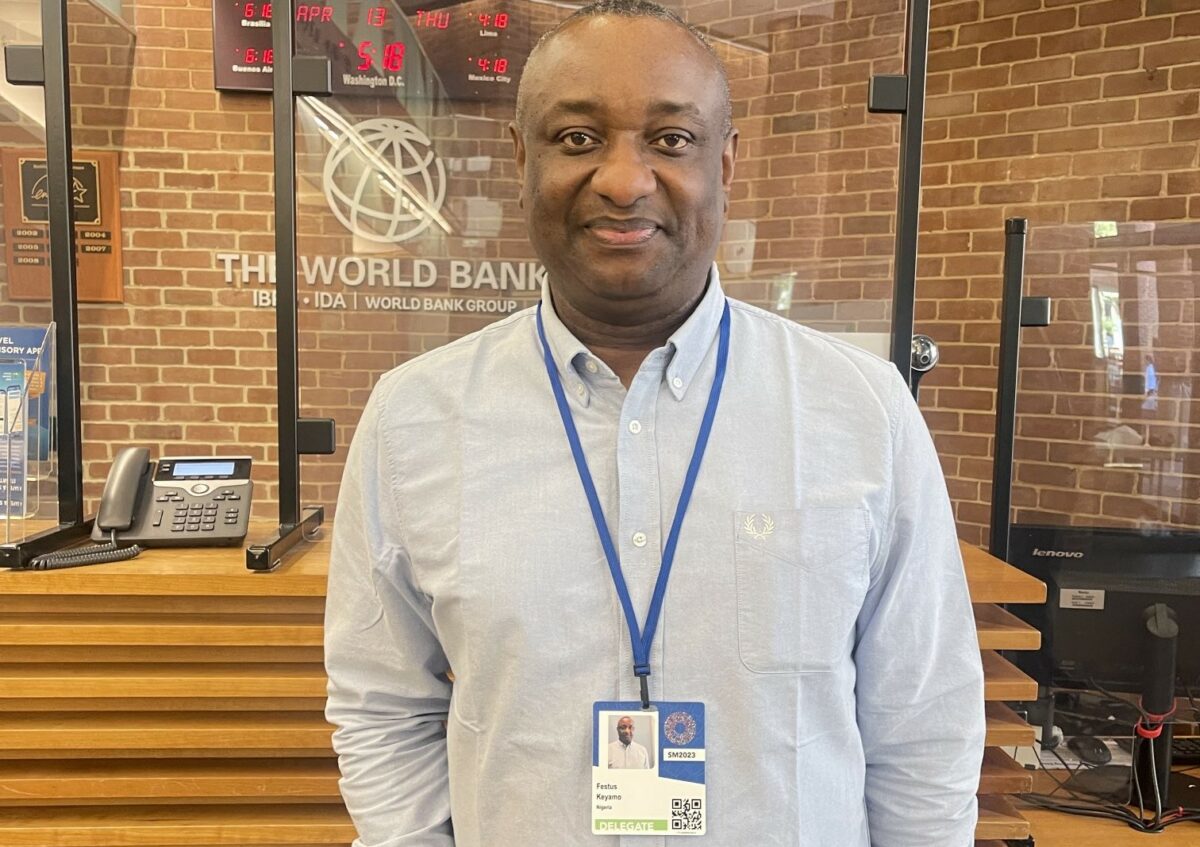When the foundation is destroyed, what can the righteous do?
When I arrived in Bauchi State, north-eastern Nigeria, I knew the exact things I wanted to find out. The education sponsored and supported by the state government was falling apart at an alarming rate. This can be attributed to factors beyond greed and corruption. It suggests a lack of empathy and a clear sense of direction for the lives of millions of children who rely on the state government for education.
What I discovered after trying to understand the problem didn’t just expose a multi-layered system of lies, deceit and delusion, which has been left to fester, it revealed that just as life comes in different shades and colours for different people, the problems in Bauchi State’s educational system come in different dimensions and packages.
In Chikani Primary School, Gi’ade, pupils have to endure trekking distances to school and staying under trees while they pray their teachers will show up at their duty post. Their classrooms are only open when their teachers come to school. On days they know their classrooms may not be open, they still come to school with longing, prayers and hope that one of their teachers will change their mind and come to school.
In Madakiri, Zankam and Zindi primary schools, Misau, the tables were flipped. Teachers sat under trees hiding away from the scorching sun to wait for pupils. They sit all day until 1 pm every day with hopes that at least one pupil will show up so they can feel a sense of fulfilment in their line of duty, this reporter learned. The classrooms are never locked except on holidays, and the furniture is clean and the blackboards wiped to await the arrival of pupils who may show up. They stay outside the community and ride long distances to get to school every day, hoping one student will make it worth it.
READ ALSO: INVESTIGATION: Why Container-Laden Trucks Kill Lagos Residents
In Mainari, a village which boasts of producing Ali Pate, Nigeria’s Minister of Health, the half-dilapidated schools were under lock and key when this reporter visited. No one was in sight. There were also no trees for anyone who might want to wait to hide from the hot weather. The only people complaining were parents who feel a sense of loss every day their children sit at home or are made to do other things aside from studying.
The parents, in a bid, raised volunteers among themselves to teach their children in the school during the day, but it soon turned out not to be enough as there was no support from the state government to hold their plans together.
“The teachers and students do not attend the school,” a parent said.
WHERE IT ALL BEGAN
On September 4, Bala Mohammed, the Governor of Bauchi State, while addressing educational stakeholders, admitted that his administration had failed residents and indigenes of the state in the quality of education provided.
Mohammed said he had failed to provide quality infrastructure to support the state’s educational plan and monitor the boards responsible for the smooth running of the ministry.
Two weeks before his boss came out to admit he had failed, Korijo Umar, a director at the Bauchi State Universal Basic Education Board, told the United Nations Children’s Fund (UNICEF) that even though they had one teacher to a school in Misau and their condition was terrible, they were better than dozens of other primary schools scattered in different places across the state, including the Bauchi Local Government Area.
The problem is more of a lack of genuine interest in the future of the hundreds of thousands of pupils who rely on public education in the state, apathy towards their childhood budding dreams, indifference to putting structures in place for the continuation of education and disdain for teachers who are an important link in the educational chain.
READ ALSO: SPECIAL REPORT: Akwa Ibom Schools Losing Girls to Teen Pregnancy at an Alarming Rate
PRESENT PUPILS, ABSENT TEACHERS
Sijaro Magaji, a primary five student of Chinkani/Kwana Uku Primary School in Giade, Bauchi State, played under a tree whose leaves were almost dropping off. The tree did little to protect him from the scorching morning sun.
Just a few yards from where he played with 10 other pupils was his classroom. At 9:00 am, he was still waiting for his teachers, or at least one of them, to resume school so he could leave the sun and lessons could begin.
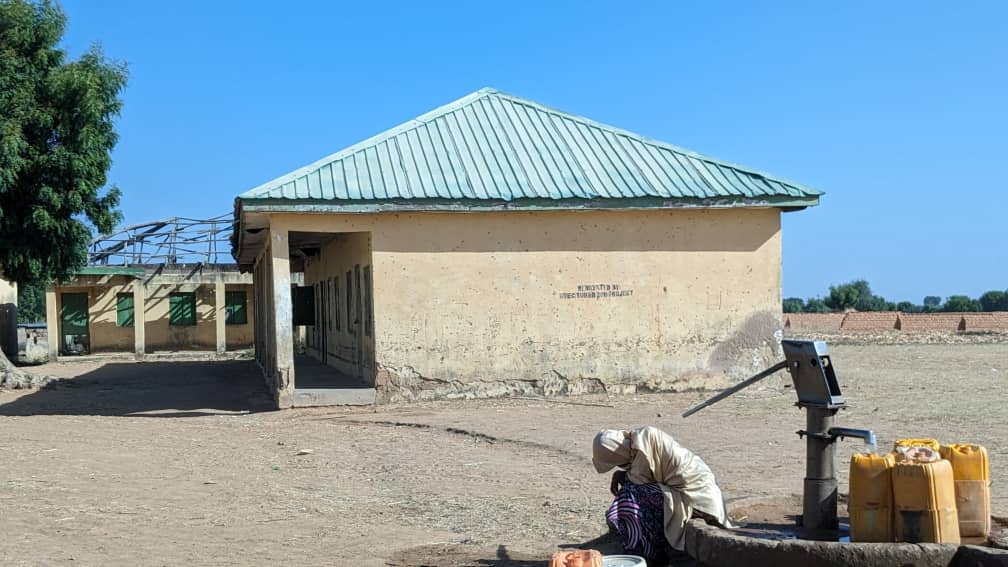
The classrooms in the primary school comprising three blocks were locked and learning activities would only begin with the arrival of one of the four teachers in the school.
Magaji hummed to a tune from an old MP3 player while some other pupils pumped on the lever of a borehole to fetch water into empty jerricans. They did that to while away time waiting for their teachers’ arrival.
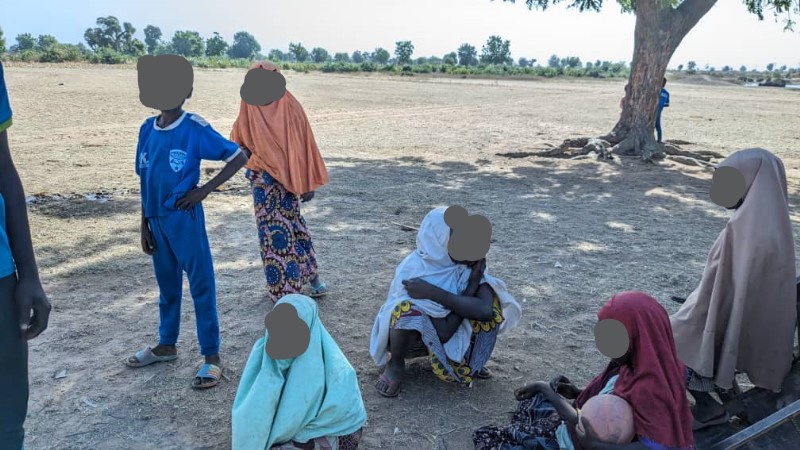
Unlike other state-funded primary schools in nearby Misau, which have only one teacher assigned to take all the lessons, Chinkani is lucky to have four, including a headmaster.
Pupils like Magaji have to combat several obstacles to get educated. The state government and its civil servants take different proportions of blame for sabotaging the dreams of its children.
Magaji looked lost and sad as he told FIJ on November 29 that he realised his ambition of becoming a businessman was slowly ebbing away.
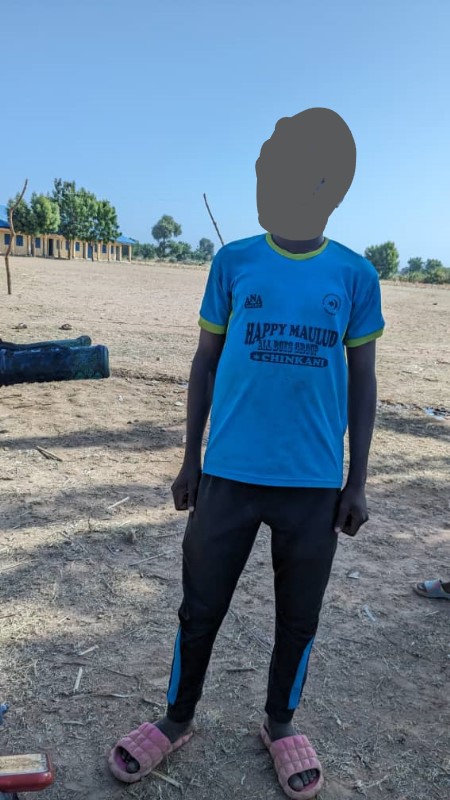
“My dream is to become a businessman, but I am afraid that is currently far-fetched because I am not getting the required knowledge to even make me educated,” he told FIJ.
“My teachers do not come to school, while I love to be in school. I come every time because I am eager to learn new things to push me to my dream of buying and selling items.
“We have only three teachers, and the last time they came to school was last Monday. Whenever they deemed it fit to come around, they would show up at 11 am and leave the school by noon.
“They do not spend more than an hour in the school. Everything they plan to teach would be taught within that one hour.”
Magaji said my fixer and I did not meet any of his teachers because Wednesday was not one of the days they showed up.
“They are usually absent on Mondays. They come on Tuesday, then go ahead to skip Wednesday to resume Thursday and Friday. The teachers do not come from this town, and that is often their excuse for being absent from work.”
Just as he spoke, a middle-aged man in a cream-colour long flowing gown and trousers walked into the school. On sighting him from afar, some of the pupils rushed towards their classrooms, but they were soon halted in their tracks when they realised he was not one of their teachers.
The figure approaching soon turned out to be that of Inspector Malam Ahmed Muhammed from the Gi’ade Local Education Authority in the state.
Muhammed had come to inspect teachers in the junior secondary school but soon stopped in his steps as he saw that the classrooms were locked. Before he spoke, he looked at the pupils sitting under the tree waiting, then proceeded to check the time from his button phone.
“Where are your teachers?” he asked the pupils.
“They are not here yet. We are waiting for them to come,” one of the pupils responded.
Muhammed made a wide survey of the premises before turning to chew some kola. He threw a few nuts into his mouth as he echoed Magaji’s fear about teachers’ absenteeism.
Just like the primary school pupils have to wait for their teachers to resume, students also wait for junior secondary school teachers to show up at work.
“I came here to inspect the junior secondary school teachers, but it is annoying that they are absent at quarter past nine,” he told FIJ.
“In an ideal situation, the teachers are expected to be in school before the students, but it is the other way around here.
“The most the local government authority (LEA) will do is to either query them or withhold their salaries. But even this rarely happens, and a lot of people get away with many things.
“Some of these teachers claim they do not come regularly because their N40,000 salary is hardly enough to keep up, but they should at least show up at their duty post.”
PRESENT TEACHERS, ABSENT PUPILS
Perhaps Mogaji’s dream of becoming a businessman might not be bleak if he was schooling in Zankam Primary School, a few miles away from his school. Here, the teachers, and not the pupils, do the waiting.
When we arrived at Zankam at 10 am, a lone male teacher sat on the verandah of the one-block building painted red, white and green.
We would soon find out that this was the colour of nearly all the primary schools in Misau as renovated by the state governor. A local had told us that the state governor, out of loyalty to his political party, the People’s Democratic Party (PDP), painted the schools in his party’s flag colours.
The teacher we met spoke like he was waiting for someone. Our presence startled him and snapped him out of his reverie. And just as we moved closer, another man, Alhaji Haruna, who is fairly advanced in age, joined him and introduced himself as the headmaster.
Alhaji Haruna bore the burden of the small school on his slim shoulders. Only a few of the 180 pupils in his school were around when we got there. He had a wide and welcoming smile with which he tried to convince us that things were not completely out of control in the school.
Haruna told FIJ how he would fund school projects and learning materials from the meagre amount he received from the government as a headmaster. He spoke longingly of how he would deploy innovative ways to make the pupils not only come to school but also stay there because he didn’t want any child to be left behind.
“The population of pupils in Zankam dwindled after the school feeding programme stopped, but because I understand what a lack of education does to the pupils, I would buy biscuits and sweets for everyone just to make them attend classes,” he told FIJ.
“I would speak with the village head and persuade him to encourage the parents to send their children to school, but even that is not enough.
“I bought these school diaries and registers with my money because the state government said they couldn’t afford them when school resumed. Usually, I would buy the ones I could afford at a time.”
Just as he spoke, some of the pupils arrived in their house wears and played in the sun as they waited for lessons to begin. Their laughter and shrieks filtered into the air, oblivious of the challenges plaguing their small school and threatening their future.
“I am usually excited whenever they come around like this, even though it’s just me and another teacher handling all of them. We used to be four, but two of our staff are on study leave. It’s just the two of us handling the school.
“What would usually do is divide the pupils to fit into the two classrooms we have and then we begin to take turns to teach them.
“We would merge primary two and three in a class. And in the other class, we would take turns to take primary four and five pupils.
“On days when they are too large to fit into the classrooms, some of them would have to take their lessons under the trees.”
The two male teachers whom my fixer and I met at Madakiri Primary School sat on a mat placed under a tree. They idly flipped the pages of notebooks used to keep track of academic activities.
They told FIJ that coming to school to meet the absence of pupils had become a rinse-and-repeat pattern. They said while adequate manpower was lacking in the state, the last time pupils resumed to their school was on November 20.
“It’s been a while since we had a school full of children’s noises and chatter. The pupils here completely boycott school, and the last time they came in this term was last Monday.
“Only eight of them were present, and that’s all. They have been the only ones consistent since the beginning of the new academic calendar.
“We can’t just come and go because the pupils are not here. We come here, wait for them, teach whoever comes around or wait till 12 noon before returning home.
On why the pupils are absent, one of the teachers said, “Pupil absenteeism was largely influenced by the school feeding programme. The moment it ended, a lot of pupils deserted their classrooms.”
It is the same tale in Zindi, teachers idling to fill their time. The taller of the two male teachers in the school said that only 10 of the pupils came to the day before and that was it.
“Sometimes, they’re here. At other times, they are in other places. Teaching is an active profession, but the current circumstances do not make it feel so,” he told FIJ.
“For the over 500 pupils we have here, there are only four teachers. On days when the school is full, our classes extend to under the trees.
“With this present dearth of teachers, when new schools are established, they still send among the teachers here to those places. Many have died and retired, but no replacement.
“In this school, we have one staff who has been here for over five years but never attends classes. He only shows up during verification because his father was once an educational secretary in Misau.
“On days the headmaster refuses to clear him, his father would simply put a call through and that would end the case. These are some of the reasons our classrooms are void of teachers.”
Unlike the teachers in Mogaji’s school who come when they please, the ones in Zindi, Madakiri and Zandam are faced with a different problem.
‘LOCKED DILAPIDATED SCHOOLS MAKE US CRY’
The next day, November 30, Yusuf Zandadi (not real name) one of the parents of four pupils attending Abba Korawa Primary School, Gi’ade Local Government Area, paused work on his farm as we drove past him to the school.
When we arrived at the primary school painted in what appears to be the governor’s favourite colours, there was no one in sight as the school was under lock.
Zandadi thought we were new teachers posted to the primary school, as the two teachers and headmaster deployed to the school only go to school when they please.
“We have only two teachers and the headmaster who comes from Hardawa in Misau LGA. The Arabic teacher comes every day; he has his keys and will open the classes to wait for the pupils,” he told FIJ.
Unlike the pupils in Chikani Primary School who go to school every day with hopes that, perhaps, one of their teachers will show up, the pupils in Abba Korawa are further driven away by their teachers.
“The attendance of pupils is really low here as a result of teachers’ absenteeism. These days, only a few of them come around. For instance, it is 10 am and none of them is around yet.
“When the pupils see this, it pushes them further away from school because they will not come the following day, thinking it is like the previous day. This issue even makes pupils stay away from school for up to a week.
“There are over 100 pupils here, and four of my children attend this school. It hurts a lot seeing that my children are not getting educated, but there is nothing I can do about it.
“My children and others who used to go to school now just roam about the farm with nothing to do.”
Some two hours, 3o minutes’ bike ride away in Tumfure, we met Abubakar Aminu (not real name), another parent, ploughing his farm right in front of the yellow primary school. The paints were nearly fading and there was no being in sight save Aminu and his three-year-old son. In a fashion similar to Zandadi’s, he stuck his hoe on hard-packed soil as he pointed to the school.
“I feel hurt and jealous whenever I go outside this place and see other children going to school. It breaks my heart so much,” he told FIJ.
“I have two sons in this school, which is locked during school hours. The children stopped going to school because the teachers would not even come at all.”
As he spoke, sadness encroached into his voice and he turned to look away from the school. This was not Mogaji hurt by his teachers’ ineffectiveness; this was parent who knows the importance of education.
However, when Mallam Saminu Muhammed (not real name), the school’s Arabic teacher arrived, he denied that teachers were the reasons students stopped coming to school.
“We have only two teachers here, myself and the headmaster. Even though my specialisation is Arabic, both of us are responsible for the 152 pupils in this school,” he told FIJ.
“The pupils’ lackadaisical attitude to education is tiresome. There was a time I would go to their houses to bring them to school, but that has not solved even half of the problem.
“There was a time I managed this whole school all by myself for two years. I was the master of everything, but I didn’t stop coming because I am genuinely interested in seeing the children educated. Afterwards, they sent the present headmaster.
“Also, many teachers were posted here, but when they saw the situation, they went to the LEA office, gave some gratification and were posted out.”
NO BUDGETARY PROVISION TO RECRUIT TEACHERS FOR OVER FOUR YEARS
FIJ’s check on the Bauchi State Government’s approved budget for the year 2020 revealed that no money was allocated for the recruitment and training of new teachers in the state.
While N64,850,351 was budgeted for the teachers’ service commission in the same year, most of the money was allocated for the purchase of office furniture, fittings, computers, photocopying machines, generating sets and the repair of office buildings.
The Bauchi State House of Assembly had approved N15 million for the purchase of office furniture and fittings, and N30 million for the repair and rehabilitation of buildings.
Alhaji Haruna had told us that the state government had not made any recruitment since 2008.
“There has been no recruitment of teachers since 2008, which is nearly 15 years ago. The available teachers are only being recycled,” he told FIJ.
“This is why you will find a school with only one teacher, a vice principal and principal, and they will be responsible for the entire school.”
The headmaster of Chikani Primary School told FIJ that he had been promoted since 2017 but it was yet to reflect on his payroll because the state government had no plans for it.
“Because the state government has no plans for education, promotions earned by teachers are never implemented. They only reflect on paper,” he said.
“In my case, I have been promoted since 2017, but it is yet to reflect on my payroll.”
On November 13, a website known as ‘recruitment board’ announced that the Bauchi State Teaching Service Commission was calling for the recruitment of teachers.
It listed the URL of the Bauchi State government (https://www.bauchistate.gov.ng/) for the job application but FIJ found that the link was dead and led nowhere.
Ironically, the Wikipedia page of the state governor sates that child education is one of the main focuses of his governance.
“It is understood, the Governor values education, especially child education. He views child education as a right owed by the government. For this reason, he made education one of his priority agendas,” Wikipedia said about him.
“So far, his government has spent over N8 billion on education, and has also approved payment of NABTEB exams fees for all the 1,751 SS3 students of Government Technical Colleges along with all the 499 students sitting for NBAIS exams for Government Arabic Colleges.”
‘WE HAVE PROVIDED INFRASTRUCTURE‘
When FIJ called Mohammed Abdullahi, the public relations officer of the Bauchi State Universal Basic Education Board (SUBEB), he said that the state government had already provided infrastructure to aid learning
“We have built infrastructure and also provided learning materials. We are also introducing models to ensure that the problem of teachers’ and pupils’ absenteeism is resolved,” he said.
When FIJ mentioned the dilapidated state of some of the schools, he said it was the responsibility of the parents who send their children to such schools to look after them and also the responsibility of the teachers who work there.
“Parents are lukewarm towards protecting learning facilities, and that is why some of them are dilapidated or half-destroyed.
“The student management committee, the parent-teacher association and stakeholders in the community ought to be responsible in looking after the structures.”
This story was produced with support from the Wole Soyinka Centre for Investigative Journalism (WSCIJ) under the Collaborative Media Engagement for Development Inclusivity and Accountability project (CMEDIA) funded by the MacArthur Foundation
Subscribe
Be the first to receive special investigative reports and features in your inbox.


